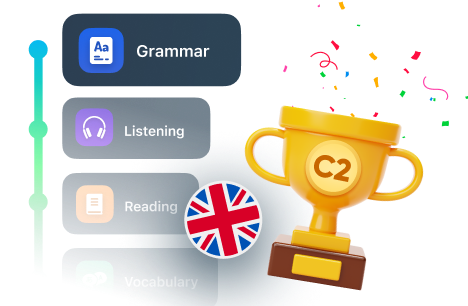
What are the most common difficulties that ESL students encounter?
Most students make significant progress during the first few months of studying a language. Any student willing to put in some effort can learn and memorize essential words and simple tenses.
Most students make significant progress during the first few months of studying a language. Any student willing to put in some effort can learn and memorize essential words and simple tenses.
After the fast learning phase, students must link their bits of knowledge together and take a significant step forward into natural conversation. At this stage, there are several roadblocks that combine to form the dreaded plateau in learning: lack of clear learning goals (becoming conversational is not a “SMART” goal), lack of confidence, and most importantly, lack of practice. The good news is that these obstacles can be overcome with a bit of planning and effort.
What is the plateau in language learning, and what causes it?
The plateau in language learning is a period of time when progress seems to stall. This can be due to a variety of factors, including lack of clear goals, lack of confidence, and most importantly, lack of practice.
To avoid the plateau, it is important to set clear goals from the beginning and to find opportunities to practice regularly. It is also helpful to supplement your studies with other activities such as watching films or listening to podcasts in the target language. With some effort and planning, you can overcome the difficulties that lead to the dreaded plateau and continue making progress in your language learning journey.
How can students overcome the plateau and continue to progress in their language studies?
The most important thing is to keep practising regularly. This can be done by setting aside time each day for studying and supplementing your studies with other activities such as watching films or listening to podcasts in the target language. It is also important to set clear goals from the beginning and to find opportunities to practice regularly. With some effort and planning, you can overcome the difficulties that lead to the dreaded plateau and continue making progress in your language learning journey.
What are some practical ways to get more practice using a new language?
There are a number of ways to get more practice using a new language. One way is to set aside time each day for studying. Another way is to supplement your studies with other activities such as watching films or listening to podcasts in the target language. It is also important to find opportunities to practice regularly. With some effort and planning, you can overcome the difficulties that lead to the dreaded plateau and continue making progress in your language learning journey.
What are some good goals to set for oneself when learning a new language?
When learning a new language, it is important to set clear goals from the beginning. Some good goals to set for oneself when learning a new language include becoming conversational, being able to read and write in the language, and being able to understand native speakers. With some effort and planning, you can overcome the difficulties that lead to the dreaded plateau and continue making progress in your language learning journey.
What are some activities that can supplement language studies and help learners progress?
There are a number of activities that can supplement language studies and help learners progress. One way is to set aside time each day for studying. Another way is to supplement your studies with other activities such as watching films or listening to podcasts in the target language. It is also important to find opportunities to practice regularly. With some effort and planning, you can overcome the difficulties that lead to the dreaded plateau and continue making progress in your language learning journey.
Summary
Most students make significant progress during the first few months of studying a language. However, once they reach the plateau in learning, progress stalls due to a lack of clear goals, lack of confidence, and most importantly, lack of practice. These obstacles can be overcome with a bit of effort and planning. The most important thing is to keep practising regularly in order to continue making progress. Students can supplement their studies with other activities such as watching films or listening to podcasts in the target language. Additionally, it is helpful to set clear goals and find opportunities to practice regularly. With some effort and planning, learners can overcome the difficulties that lead to the dreaded plateau and continue making progress in their language learning journey.


















